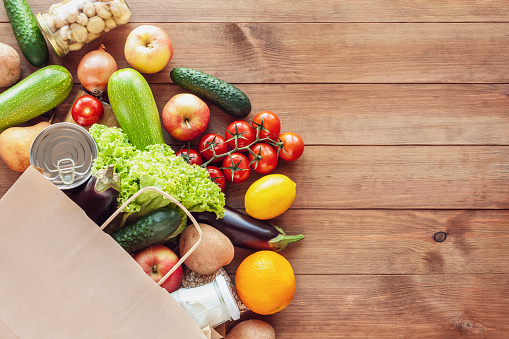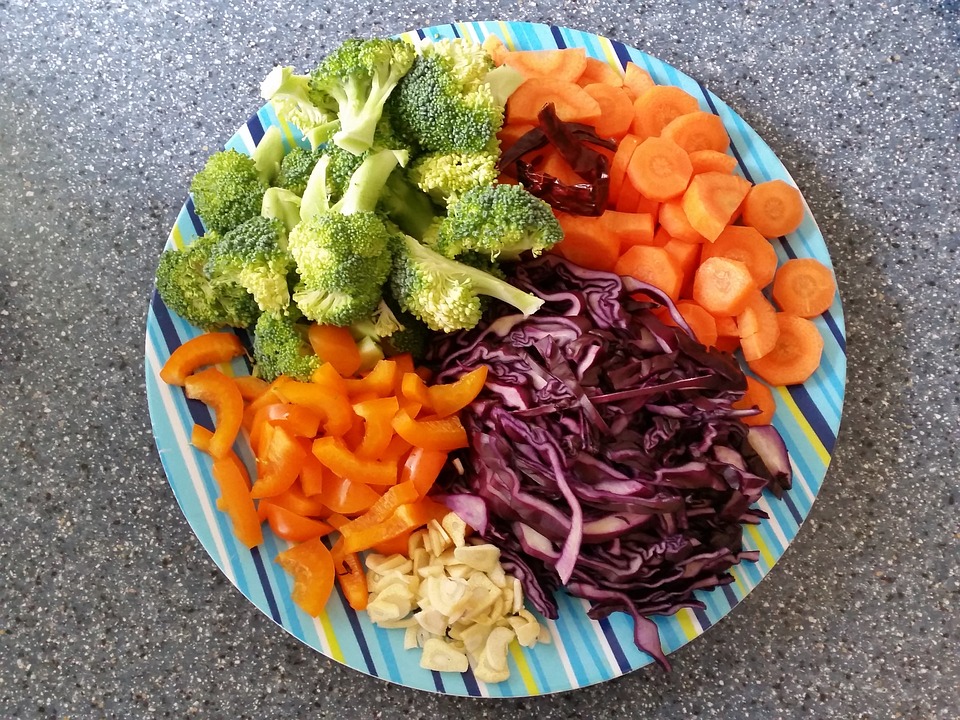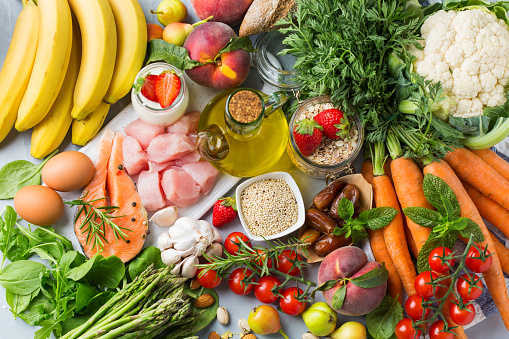
A food item is considered to be low in calorie food if it has less calories than the amount that is suggested to consume on a daily basis. It has been proposed that consuming foods that are low in calories may assist in lowering total calorie consumption, burn fat or weight loss, which in turn lowers the chance of developing obesity and the metabolic consequences that are linked with it, such as fatty liver disease and type 2 diabetes.
Table of Contents
What are low calorie food

Low calorie food yet still supply the required nutrients to sustain a balanced diet are referred to as “low calorie items,” and this word is used to describe such foods.
When it comes to one’s eating routine, it is crucial to make decisions that are beneficial to one’s health in this day and age. You should avoid depriving yourself of essential nutrients, but at the same time, you should try to limit the number of calories you take in each day. Finding the middle ground between these two poles might be challenging at times.
You won’t have to manually tally them up on a piece of paper or enter them into an app each time you try a new dish since there are a few easy methods by which you may maintain tabs on the number of calories that are included in the various portions of your go-to dishes. To explain, this is what we mean:
A low calorie food contains less calories than other items of a similar kind, although this does not always indicate that it is low in fat or carbohydrates. For instance, if a cupcake has 200 calories and you select one with 200 calories rather than one with 300-400 calories, then it is considered to have a low amount of calories for you to consume.
15 low calorie food

A balanced diet should include both foods high in calories and those low calorie food. For instance, foods heavy in healthy fats, such as eggs, nuts, seeds, and avocados, have much more calories than fruits and vegetables, but are nevertheless very nutritious.
Combining calorie-dense foods such as those described above with low-calorie items, such as fruits and vegetables, may make meals more full and enjoyable.
Apples
Apples are one of the most popular fruits in the United States and are very healthy, which is considered as low calorie food. One cup of apple slices (109 grams) has 62 calories and about 3 grams of dietary fiber. Apples are a rich source of fiber, vitamin C, and potassium, as well as antioxidant components such as quercetin, in addition to being low in calories.
Arugula
Arugula is a dark, peppery-flavored leafy green. It is widely used in salads and is an excellent source of vitamin K. In addition, it includes potassium, calcium, and folate and considered as low calorie food.
Asparagus
Asparagus is a blooming vegetable whose colors include green, white, and purple. It is considered as low calorie food. Asparagus is a healthful vegetable that contains a range of vitamins, minerals, antioxidants, and anti-inflammatory plant chemicals.
Beets
Beets are colorful root vegetables that come in a variety of hues, including red and orange, which is considered as low calorie food. They include phytonutrients such as betalains and phenolic compounds, which may possess heart-health enhancing qualities.
Cabbage
Cabbage is a cruciferous vegetable that is available in several hues, including green, red, and white. It is a frequent element in slaws and salads and the star of fermented foods like as sauerkraut and kimchi and considered as low calorie food.
Carrots
Carrots are somewhat sweet, crisp, and nutritionally dense. Although orange types are the most common, carrots are available in a variety of hues, from white to purple. Carrots are rich in carotenoids, such as lutein and beta carotene, which are essential for good eyesight, immunological function, and other functions, which is considered as low calorie food.
Celery
Due to its high water content, celery has little calories, which is considered as low calorie food. Try combining celery sticks with natural peanut butter and raisins for a satisfying blend of protein, fat, and fiber in a traditional snacking combo.
Cucumbers
Cucumbers are a frequent ingredient in salads and are a delicious vegetable. In addition to flavoring water with fruits and herbs, they serve as a low-calorie basis for high-protein meals like chicken salad.
White mushrooms
Mushrooms are the reproductive bodies of fungus; they are neither vegetables nor meats. However, vegetarians and vegans sometimes substitute them for meat.
Onions
Onions are low-calorie veggies associated with many health advantages, which is considered as low calorie food.
Papaya
The papaya is a fruit with orange flesh and black seeds. Typically, it is cultivated in tropical climates.
Numerous vitamins and minerals are abundant, including provitamin A, vitamin C, folate, and potassium.
Strawberries
Strawberries are delicious and nutritionally dense. They complement both sweet and savory foods, making them a versatile cooking component.
Spinach
Spinach is another leafy green that is low in calories and rich in vitamins and minerals.
It is rich in vitamin K, provitamin A, and folate and includes eye-health-promoting bioactive components such as lutein and zeaxanthin.
Tomatoes
Tomatoes combine nicely with a variety of components and may be consumed fresh, cooked, or puréed in tomato sauce.
In addition, tomatoes are an abundant source of defensive plant chemicals such as lycopene.
Watermelon
Watermelon, as its name indicates, an extremely hydrating fruit.
It is wonderful by itself or when combined with fresh mint and feta cheese.
Watermelon is an excellent source of several nutrients, such as vitamin C. 46 calories are included in 1 cup
Health Benefits of low calorie food

Consuming foods that are low in calories is, without a shadow of a doubt, one of the most effective ways to reduce weight. But what you may not have realized is that in addition to that, it can help you maintain your health and your happiness! The following is a list of some of our favorite ways in which consuming foods low in calories might benefit your overall health:
It does this by lowering the amount of energy that your body requires to carry out its functions, which in turn makes it easier for you to maintain a healthy weight.
The risk of developing cardiovascular disease, diabetes, and high blood pressure is reduced as a result of this. This is due to the fact that it decreases levels of cholesterol and reduces the likelihood of getting these disorders by as much as fifty percent.
-It has a calming effect. It has been shown that eating meals low in calories that are rich in fiber may lower levels of stress hormones like cortisol in your body. People who consumed more whole grains on a daily basis had lower levels of the stress hormone cortisol, and these lower levels were maintained even when they consumed less total calories.
FAQs
What food has lowest calories?
Celery is the food with the lowest calories.
You should realize that each stalk of celery has less than 10 calories, which is surprisingly low. Additionally, it is loaded with vitamins and antioxidants that may help you feel your best when dieting.
What is the most low calorie meal?
Eggs for breakfast are arguably the meal with the lowest number of calories overall. Eggs are one of the healthiest meals on the planet since they are packed with protein, as well as other vitamins and minerals that are necessary for proper functioning of the body.
Conclusion
There is without a doubt a vast range of goods and services available on the market today that may help you in achieving your weight goal, whether that be through the process of weight loss or through the maintenance of your current weight. You may be able to narrow down which food kinds are common in your diet by trying out numerous different meals.
This will enable you to make modifications in accordance with the findings. You will also be able to have a better concept of how the foods you pick will effect your body, which will give you the peace of mind that the food choices you are making are ones that support and sustain your health. In addition to this, you will be able to have this knowledge.
It is quite possible to either reduce the amount of fat you store or keep it at the same level while continuing to enjoy delectable and filling meals. Be careful to evaluate the amount of water, fiber, and protein that are included in the meals you consume in addition to the number of calories that they contain. Consuming nutritious and delectable meals that leave you feeling full will allow you to lower the number of calories you consume.

